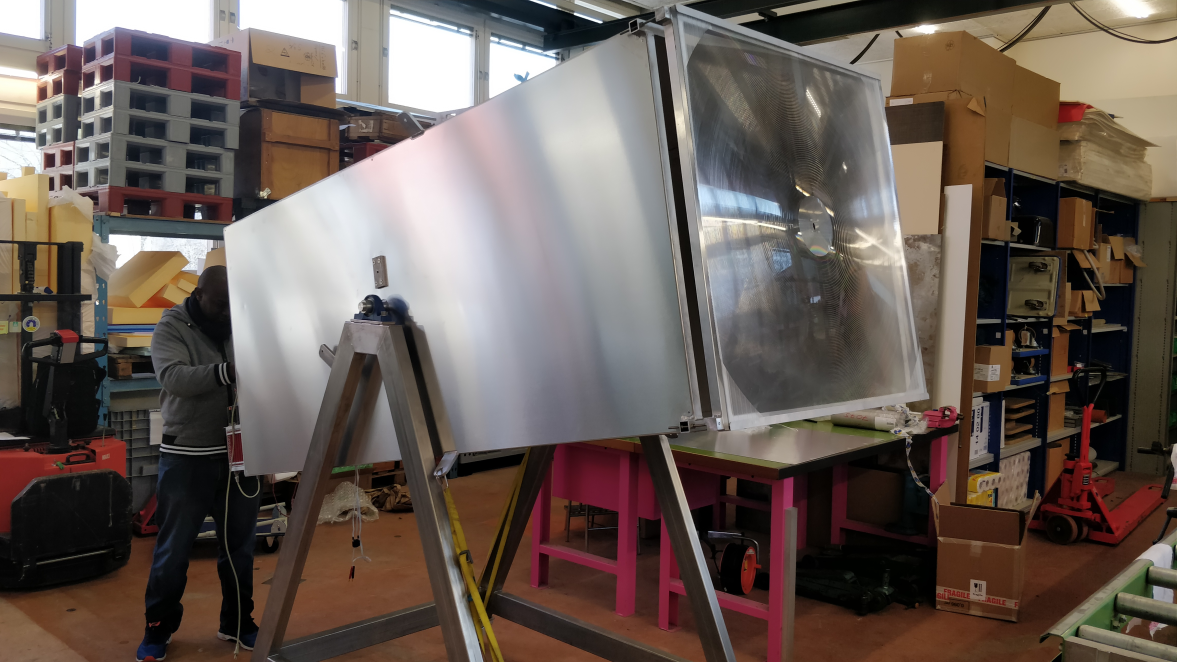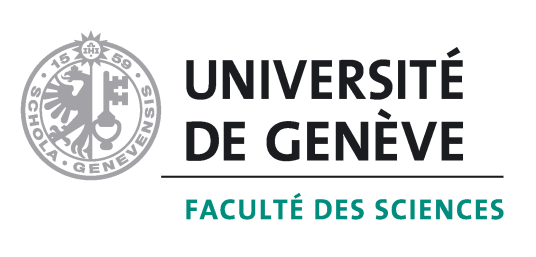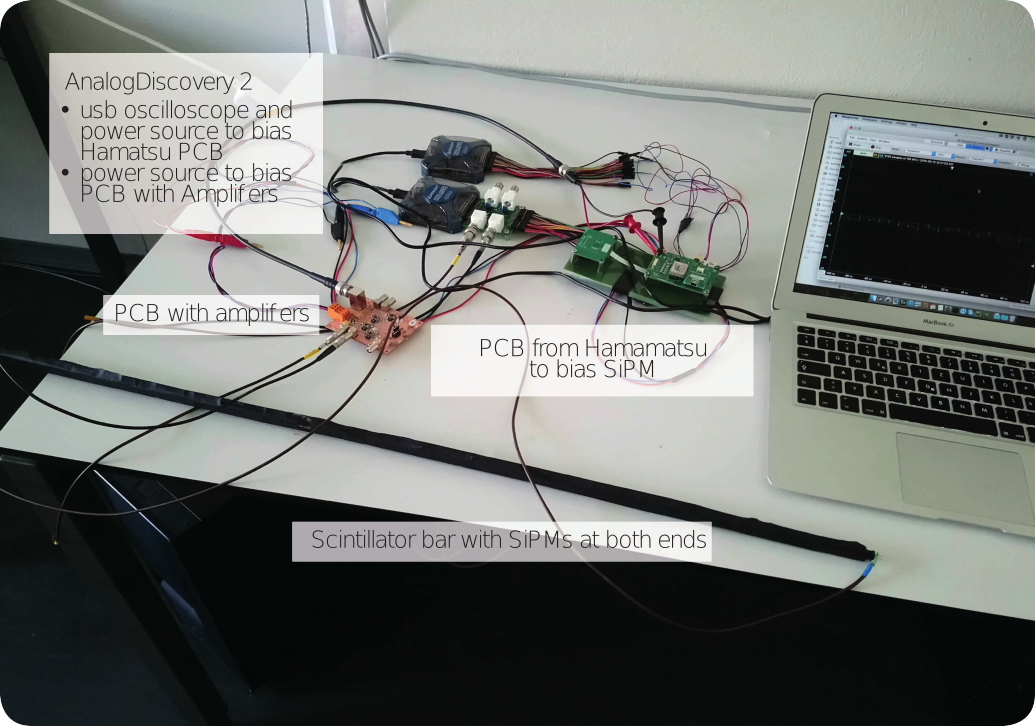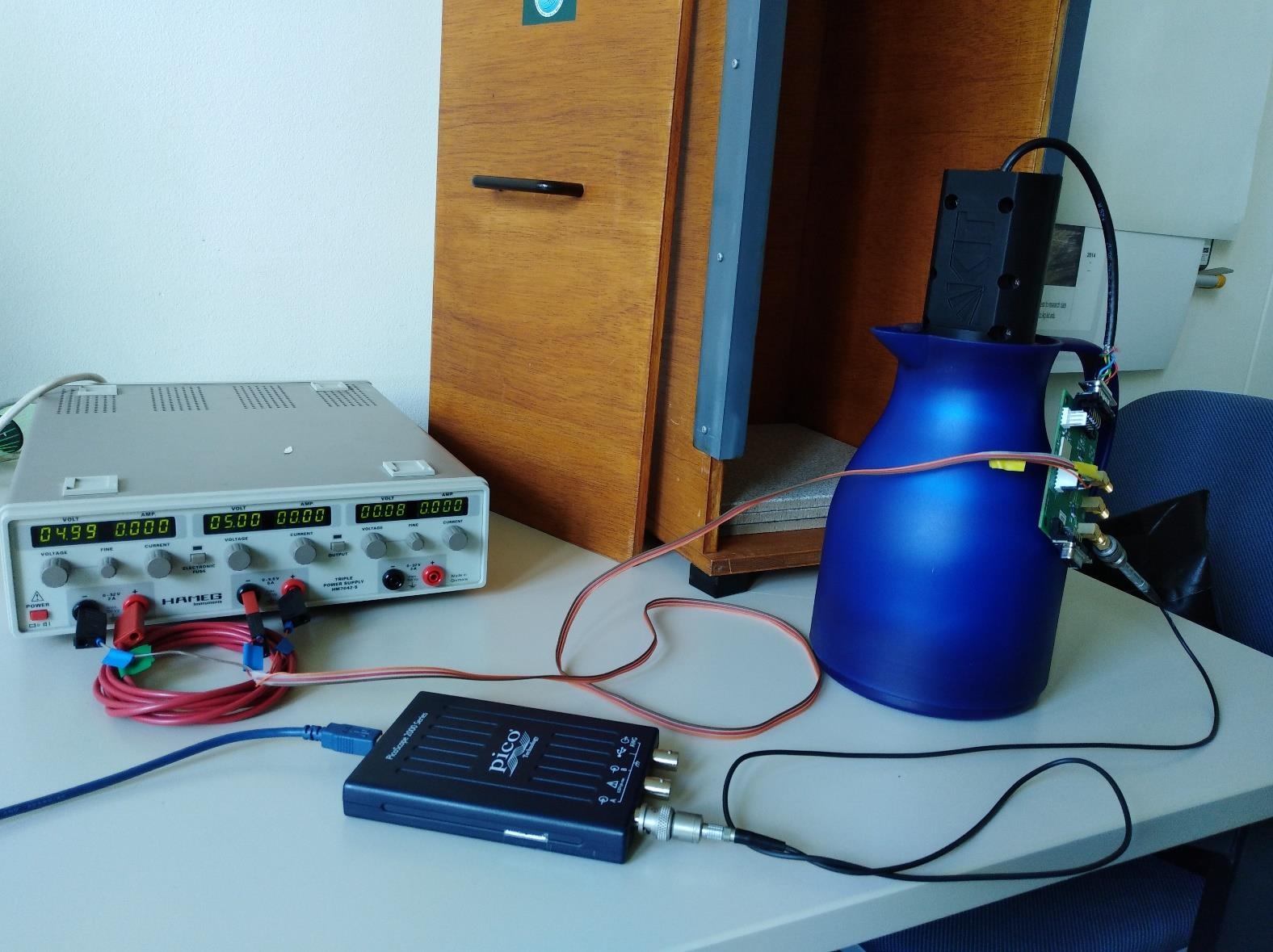A Mini-Telescope for Cosmic Rays

 The mini-telescope was developed for outreach purposes and to investigate the behavior of a readout ASIC coupled to large SiPM sensors. The outreach scope is to increase the interest in gamma-ray astronomy, cosmic rays, as well as detector physics. This project is the result of a collaboration between the Multi-Messenger High-Energy Astrophysics group of the Particle Physics Department (DPNC) and the Department of Astronomy at the University of Geneva.
The mini-telescope was developed for outreach purposes and to investigate the behavior of a readout ASIC coupled to large SiPM sensors. The outreach scope is to increase the interest in gamma-ray astronomy, cosmic rays, as well as detector physics. This project is the result of a collaboration between the Multi-Messenger High-Energy Astrophysics group of the Particle Physics Department (DPNC) and the Department of Astronomy at the University of Geneva.
If you are interested in more detail please contact A. Nagai: This email address is being protected from spambots. You need JavaScript enabled to view it.


